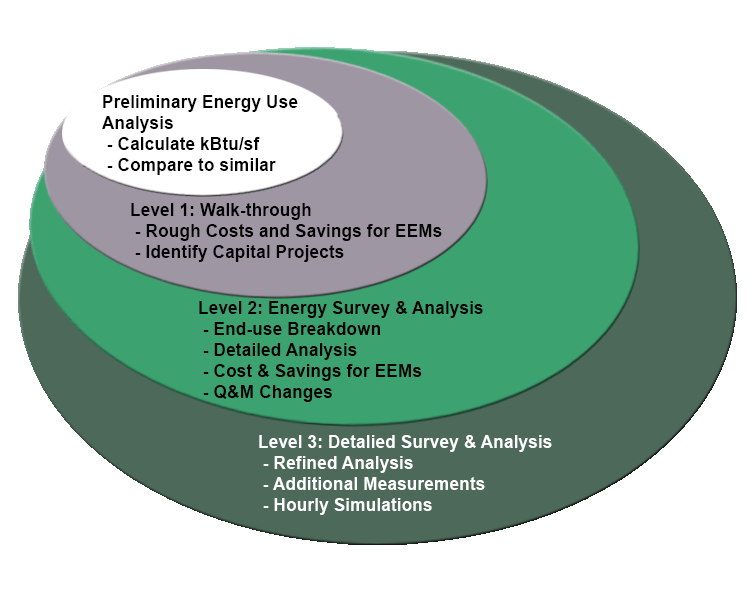Energy Audit
An Energy Audit is the first step in order to achieve the Energy Efficiency goal. Utilities in Ontario and all over Canada have given high emphasis on Energy Audit to determine the energy consumption and also to create awareness about the benefits of conducting an audit. This information can be used to identify opportunities to improve efficiency, decrease energy costs and reduce greenhouse gas emissions that contribute to climate change.
Power Saving Systems has established itself as a qualified Energy Auditing company since 2002. Our highly trained professional engineers are capable of conducting Energy Audits and generating reports with recommendations on energy saving opportunities. This is very important for any building owners to know about the energy usage in their facilities and also how to manage it properly so that they can save energy as well reduce the operational costs.
Enersource Hydro Mississauga recognized our experience and professional services in the field of Energy Audit and we have been their official partners in order to conduct Energy Audits and hold seminars for the business sector. During this period, we had conducted Energy Audits in many condo buildings, industrial / manufacturing sectors and hospitality sectors. We did 6 seminars for the property managers and building owners about the Energy Audit and Energy Retrofit programs and the incentives they can get from Enersource Hydro Mississauga.
Brochure on the Energy Audit incentives:
- Program overview
- Toronto Hydro Audit Funding
The AUDIT FUNDING program is open to owners and tenants of:
- Commercial buildings, such as offices, retail and grocery stores, restaurants, hotels and warehouses.
- Institutional buildings, such as hospitals, schools, universities, colleges, government and civic buildings.
- Industrial buildings, such as manufacturing facilities and warehouses.
- Multi-family buildings, such as apartments (including social housing) or condominiums.
- Agricultural facilities, such as dairy, swine or poultry farms, greenhouses and nurseries
Levels of Energy Audits: Generally, four levels of Energy Audit and Analysis are conducted (ASHRAE):
- Level 0 – Benchmarking: This first analysis consists in a preliminary Whole Building Energy Use (WBEU) analysis based on the analysis of the historic utility use and costs and the comparison of the performances of the buildings to those of similar buildings. This benchmarking of the studied installation allows determining if further analysis is required.
- Level 1 – Walk-through Energy Audit: Preliminary analysis made to assess building energy efficiency to identify not only simple and low-cost improvements but also a list of energy conservation measures (ECMs, or energy conservation opportunities, ECOs) to orient the future detailed audit. This inspection is based on visual verifications, study of installed equipment and operating data and detailed analysis of recorded energy consumption collected during the benchmarking phase.
- Level 2 – Detailed/General Energy Audit: Based on the results of the pre-audit, this type of energy audit consists in energy use survey in order to provide a comprehensive analysis of the studied installation, a more detailed analysis of the facility, a breakdown of the energy use by each segments and a first quantitative evaluation of the ECOs/ECMs selected to correct the defects or improve the existing installation. This level of analysis can involve advanced on-site measurements and analysis. Utility bills are collected for a 12- to 24-month period to allow the auditor to evaluate the facility's energy demand rate structures, energy usage profiles, power factor and load factor. A detailed financial analysis (ROI and paybacks) is performed for each measure based on detailed implementation cost estimates; site-specific operating cost savings, and the customer's investment criteria. Sufficient detail including technology is provided to justify the project implementation.
- Level 3 – Investment-Grade Detailed Survey & Analysis Audit: Detailed Analysis of Capital-Intensive Modifications focusing on potential costly ECOs requiring rigorous engineering study and simulations. The investment-grade audit expands on the detailed audit described above and relies on a complete engineering study in order to detail technical and economical issues necessary to justify the high investment related to the transformations.

Interest in energy audits has recently increased as a result of growing understanding of human impact upon global warming and climate change. Energy audits are also popular due to financial incentives available from Utilities and it helps to treat Energy Conservation as a Business Process.
We provide Energy Audit Tool to our valued customers.
